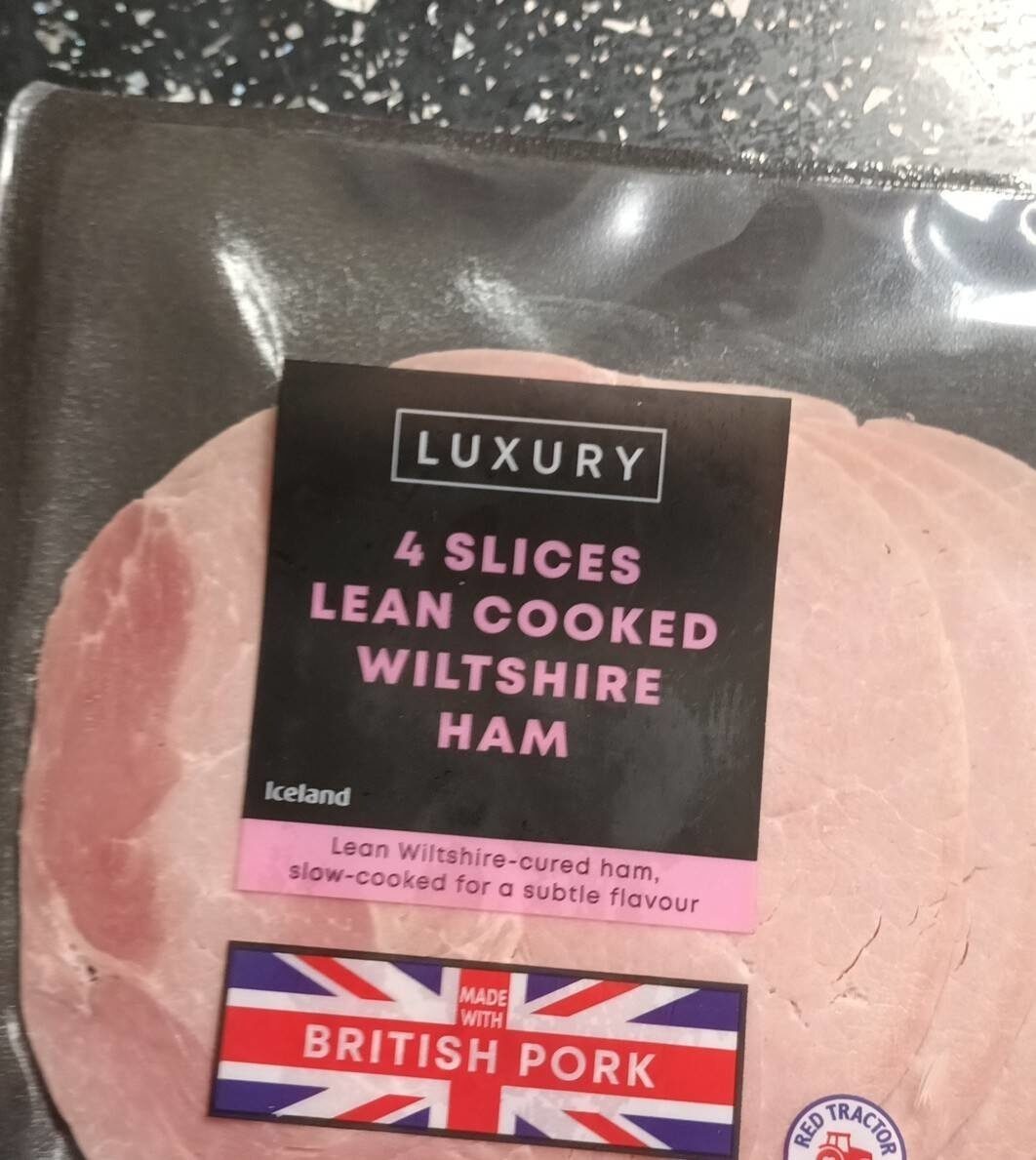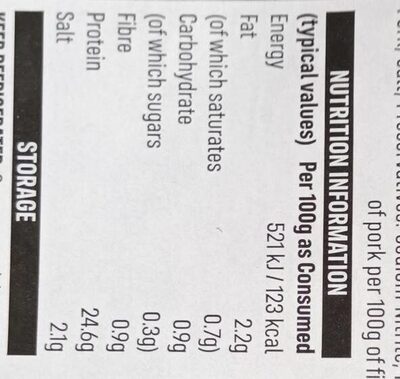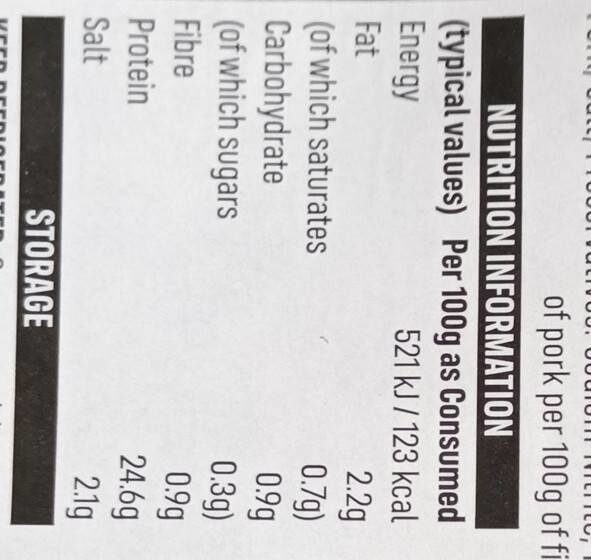Cooked ham - Iceland - 100 g
This product page is not complete. You can help to complete it by editing it and adding more data from the photos we have, or by taking more photos using the app for Android or iPhone/iPad. Thank you!
×
Barcode: 5010482754945 (EAN / EAN-13)
Quantity: 100 g
Packaging: Plastic
Brands: Iceland
Categories: Meats and their products, Meats, Prepared meats, Hams, White hams
Labels, certifications, awards:
Assured Food Standards
Origin of ingredients: United Kingdom
Manufacturing or processing places: United Kingdom
Traceability code: UK HU200 EC
Stores: Iceland
Countries where sold: United Kingdom
Matching with your preferences
Environment
Carbon footprint
Packaging
Transportation
Report a problem
Data sources
Product added on by magikarp99
Last edit of product page on by kiliweb.
Product page also edited by ecoscore-impact-estimator, openfoodfacts-contributors, packbot, yuka.sY2b0xO6T85zoF3NwEKvlk1kad_lhTGZFEDhtW6imMvVLcC0PIkt5Nnzbqo.









